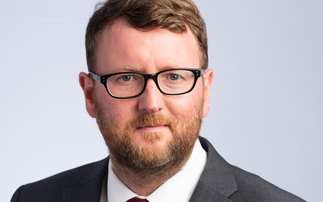
Bobby Riddaway: We need innovation in the decumulation phase
Many people (including some pension professionals) have moved to retirement with auto-enrolment defaults and must now make difficult decisions. Many are scared and don't know what to do because there is too much choice and complexity.
We shouldn't expect people to become experts and be forced to make choices that they have never had to make before.
Awareness of pensions is still very low, with research by My Pension Expert showing just 51% of UK adults know how much is in their pensions, which only increases to 56% among those aged 55 and above. Less than a third (32%) of over-55s are confident they will retire with enough money to achieve their desired lifestyle and very few have access to financial advice.
Worryingly, even some pension professionals who are coming up to retirement or pension freedom age have told me they are unsure what to do. If they are finding it hard to decide, then how on earth can people outside the industry with no pensions knowledge make good decisions for their retirement? People need help with making retirement decisions to ensure they get the best possible outcomes.
The power of defaults
If a person has been defaulted into a pension in their late teens/early twenties, they should also be able to default into retirement rather than making a cliff-edge decision.
In fact, with retirement incomes being insufficient for many given the demise of final salary schemes, it is highly likely that many retirees will turn to part-time work. As such, defaults that allow for longer term investment at traditional retirement ages should be considered.
There is a lot of industry thinking going into the options to make available at retirement, with defined contribution (DC) master trusts leading the way.
However, most people will be unable or ill-equipped to make a decision. Whether that may be 55% or 85% of people, I am pretty convinced it will be the majority, so the industry should prioritise creating defaults for these people.
Once that has been solved, options for people who are equipped to make retirement decisions can be developed and evolved over time.
Is CDC the answer?
The government has been looking at the decumulation phase, with its recent Helping savers understand their pension choices consultation exploring what decumulation options are offered by DC pension schemes and considering introducing Collective DC (CDC) in the decumulation phase.
While I am a fan of the concept of CDC, I believe it is currently being oversold - i.e. being touted as almost a perfect solution without any of the education on the cross-subsidies over generations, time and markets.
As a former with-profits actuary, I see CDC as only one step, or at most two steps away from with-profits. Interestingly, the demise of with-profits had nothing to do with these steps - the first one of which is the profit being made on the policies. The reasons were to do with problems created by smoothing over time (the so-called orphan estate); issues with smoothing over market events (the market value adjuster), and the cost of providing guarantees.
While CDC does not provide guarantees, over time it could be seen as providing guarantees which carry risks of regulatory change among other things. We only need to look at the non-guaranteed increases that final salary pension schemes used to give, and the preservation rules that subsequently came into force, to see how any practice of providing ‘bonuses' could be viewed differently by future generations.
Industry collaboration needed
We should be working towards a solution which recognises most UK pension savers will not be willing or be able to make a decision. I am not criticising any of the good work being done by the industry on options at-retirement and communications. However, this work will only be applicable to the minority of pension savers and therefore we must make it a priority to give the majority of pension savers access to retirement solutions.
Interestingly, Australia, which is much further ahead than the UK in the accumulation and consolidation journey, is seeing people making unwise decisions when they get to retirement. Australia's population is perceived to be more pensions-savvy and yet many people are still struggling to make retirement choices. The Australian regulator is therefore encouraging superfunds to be more innovative in the retirement phase through their retirement income covenant[i].
In the UK, we also need innovation in the decumulation phase and defaults are one way forward. Consultancies have recently spoken about the opportunities (and challenges) of creating defaults for retirement income strategies in decumulation, but we have seen little action. The industry must therefore collaborate on through-retirement options for DC and crack the decumulation default option for those who cannot get up to speed to make a good retirement decision.
Bobby Riddaway is a professional trustee at Capital Cranfield. His comments above are his own views and do not represent any statement of policy by Capital Cranfield.
[i] The retirement income covenant, which came into effect on 1 July 2022, requires superfund trustees to develop a retirement income strategy to improve long-term outcomes for their members in or approaching retirement and make this strategy publicly available.







